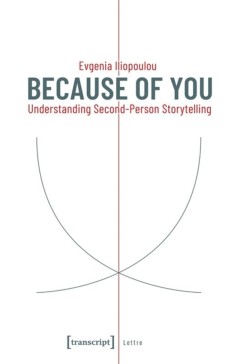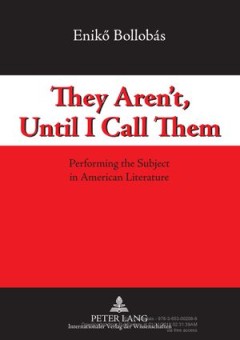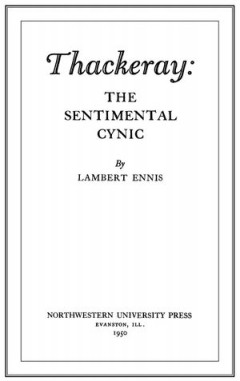Filter by

Because of You : Understanding Second-Person Storytelling
Second-person storytelling is a continually present and diverse technique in the history of literature that appears only once in the oeuvre of an author. Based on key narratives of the post-war period, Evgenia Iliopoulou approaches the phenomenon in an inductive way, starting out from the essentials of grammar and rhetoric, and aims to improve the general understanding of second-person narrativ…
- Edition
- -
- ISBN/ISSN
- 9783839445372
- Collation
- 256 halaman
- Series Title
- -
- Call Number
- 800 ILI b

Aspects of Poverty and Inequality in Cameroon
Poverty and inequality remain extremely high for Cameroon despite improvements in poverty figures between 1996 and 2001. To understand the dynamics of poverty and inequality between 1996 and 2001, this book develops a poverty and inequality profile, investigates the sources of inequality along spatial lines and simulates some policies which could be used in the reduction of poverty and inequali…
- Edition
- -
- ISBN/ISSN
- 9783631595350
- Collation
- 171 halaman
- Series Title
- -
- Call Number
- 362 KUM a

Migrants and Literature in Finland and Sweden
Migrants and Literature in Finland and Sweden presents new comparative perspectives on transnational literary studies. This collection provides a contribution to the production of new narratives of the nation. The focus of the contributions is contemporary fiction relating to experiences of migration. The volume discusses multicultural writing, emerging modes of writing and generic innovations.…
- Edition
- -
- ISBN/ISSN
- 9789518580358
- Collation
- -
- Series Title
- -
- Call Number
- 572.9 RAN m

Women's Writing in Contemporary France: New writers, new literatures in the 1…
The 1990s witnessed a veritable explosion in women's writing in France, with a particularly exciting new generation of writers coming to the fore, names like Christine Angot, Marie Darrieussecq and Régine Detambel. Other authors such as Paule Constant, Sylvie Germain, Marie Redonnet and Leïla Sebbar, who had begun publishing in the 1980s, claimed their mainstream status in the 1990s with new …
- Edition
- -
- ISBN/ISSN
- 9781526137999
- Collation
- -
- Series Title
- -
- Call Number
- -

William Warner's Syrinx: or, A Sevenfold History
William Warners Syrinx, or a Sevenfold History, may be the first English novel. Unlike others of the time, though, Warner wrote a realistic novel whose ancestors include the adventure stories of Alexandrine romance, and focus not on the tales of an aristocratic class but on the lives of middle-class individuals. Wallace A. Bacon’s critical edition brings Warner’s important novel –with its…
- Edition
- -
- ISBN/ISSN
- 9780810138230
- Collation
- -
- Series Title
- -
- Call Number
- -

White Field, Black Seeds: Nordic Literacy Practices in The Long Nineteenth Ce…
"White field, black seeds – who can sow? Although the riddle from which this these words are taken comes from oral tradition, it refers to the ability to write, a skill which in most Nordic countries was not regarded as necessary for everyone. And yet a significant number of ordinary people with no access to formal schooling took up the pen and produced a variety of highly interesting texts: …
- Edition
- -
- ISBN/ISSN
- 9789522224446
- Collation
- -
- Series Title
- -
- Call Number
- -

A war of individuals: Bloomsbury attitudes to the Great War
This book draws together for the very first time examples of the 'aesthetic pacifism' practised during the Great War by such celebrated individuals as Virginia Woolf, Siegfried Sassoon and Bertrand Russell. In addition, the book outlines the stories of those less well-known who shared the mind-set of the Bloomsbury Group when it came to facing the first 'total war'. The research for this study …
- Edition
- -
- ISBN/ISSN
- 9780719060700
- Collation
- -
- Series Title
- -
- Call Number
- -

They Aren’t, Until I Call Them
In the story of the three baseball umpires, two novice umpires compete in boasting how they respect «truth» and the way things «really» are. One says, «I call them the way I see them»; the other, trying to trump this remark, responds, «I call them the way they are». Then enters the third, most seasoned umpire, saying, «They aren’t, until I call them». This book deals with two widel…
- Edition
- -
- ISBN/ISSN
- 9783631589823
- Collation
- -
- Series Title
- -
- Call Number
- -

Thackeray: The Sentimental Cynic
Thackeray: The Sentimental Cynic chronicles British novelist William Thackeray’s ambivalent attitudes toward society and traces his conduct during the major crises of his life in terms of those attitudes. Lambert Ennis examines the emotional tensions in Thackeray’s life and the impact they had in his work. In so doing, he illustrates key themes in Victorian studies more broadly: the questio…
- Edition
- -
- ISBN/ISSN
- 9780810138377
- Collation
- -
- Series Title
- -
- Call Number
- -

Storyplaying: Agency and Narrative in Video Games
Incontestably, Future Narratives are most conspicuous in video games: they combine narrative with the major element of all games: agency. The persons who perceive these narratives are not simply readers or spectators but active agents with a range of choices at their disposal that will influence the very narrative they are experiencing: they are players. The narratives thus created are realizat…
- Edition
- -
- ISBN/ISSN
- 9783110272451
- Collation
- -
- Series Title
- -
- Call Number
- -
 Computer Science, Information & General Works
Computer Science, Information & General Works  Philosophy & Psychology
Philosophy & Psychology  Religion
Religion  Social Sciences
Social Sciences  Language
Language  Pure Science
Pure Science  Applied Sciences
Applied Sciences  Art & Recreation
Art & Recreation  Literature
Literature  History & Geography
History & Geography